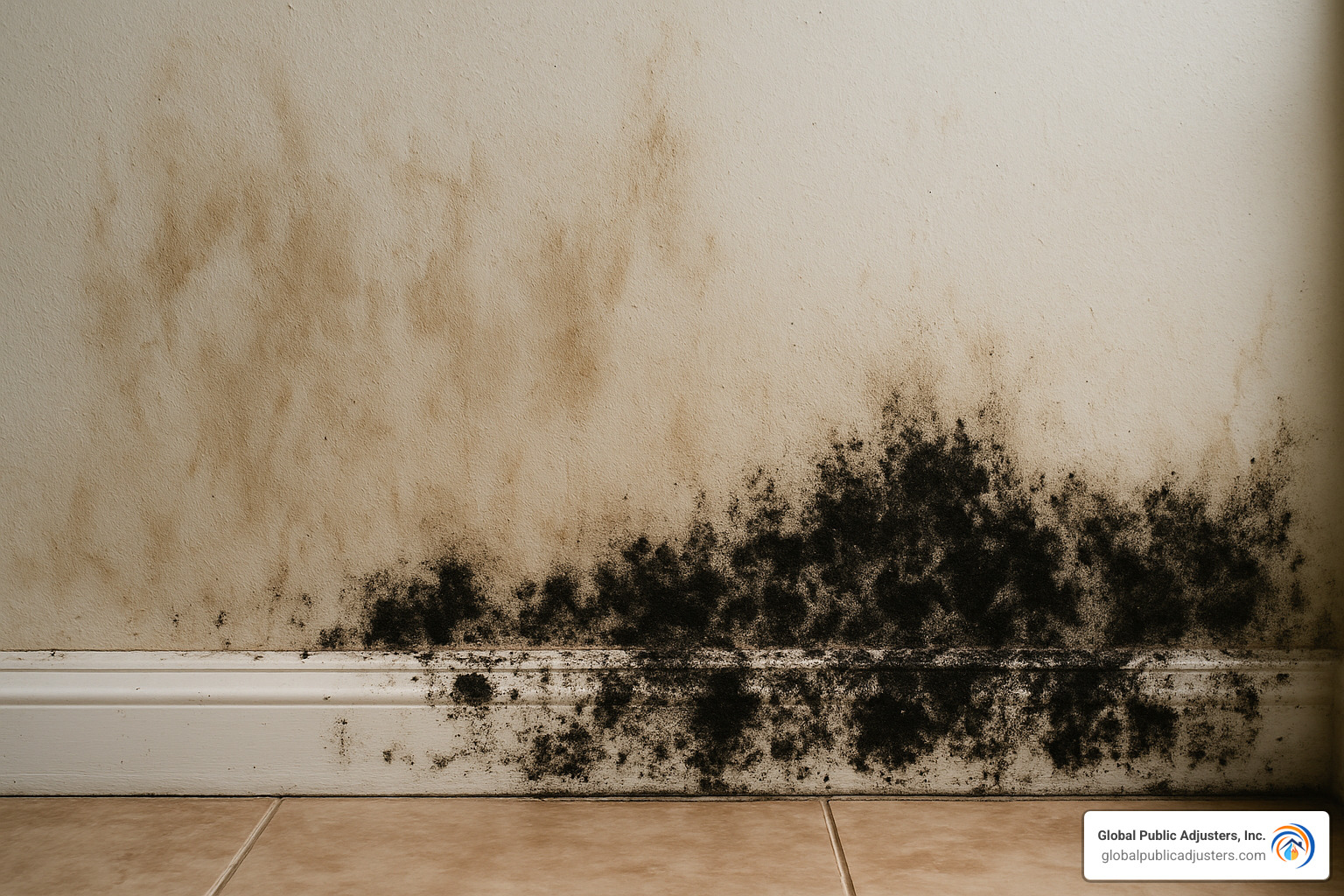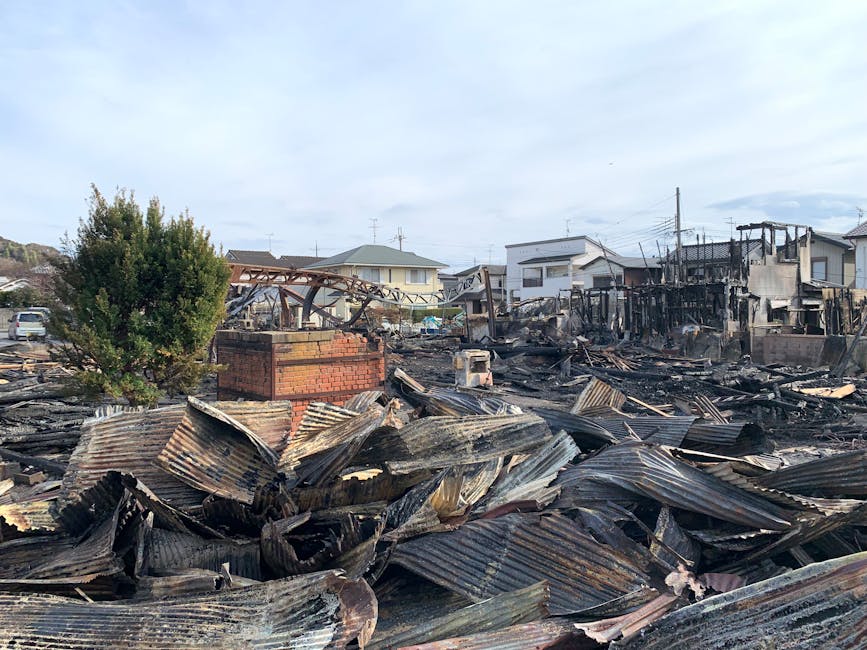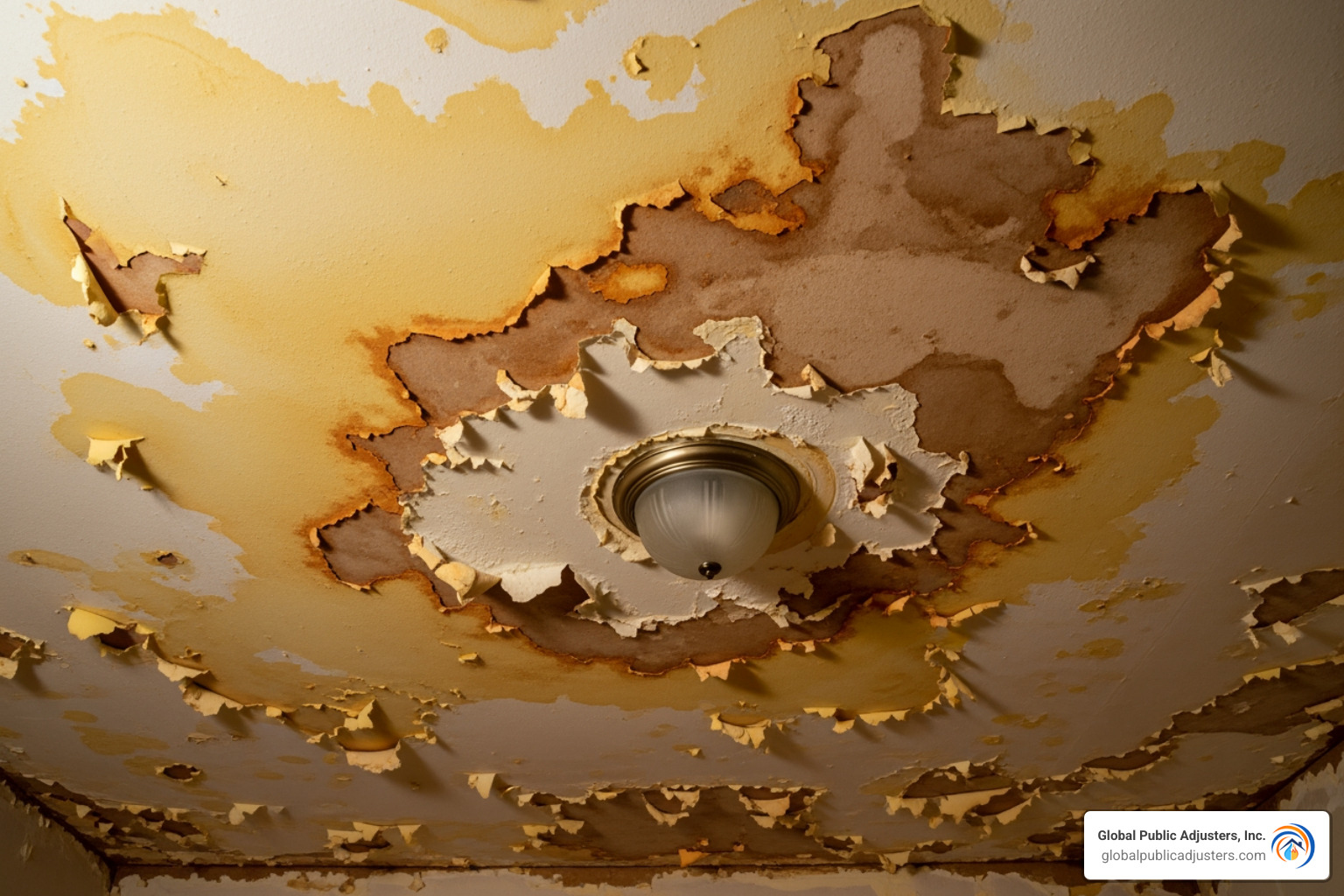Florida Attorneys Mold and Water Damage Claims: Top 5 Winning Strategies 2025
Why Florida Homeowners Need Specialized Legal Help for Mold and Water Damage
Florida attorneys mold and water damage claimsspecialists help homeowners steer complex insurance disputes when water intrusion leads to toxic mold growth. These legal experts understand Florida’s unique climate challenges and insurance laws that make mold claims particularly difficult to win.
Quick Answer for Florida Mold & Water Damage Claims:
- Statute of Limitations: 5 years for insurance disputes, 4 years for negligence claims
- Common Causes: Hurricane damage, burst pipes, roof leaks, AC failures
- Typical Coverage: Water damage often covered, mold usually excluded unless from covered peril
- Attorney Fees: Most work on contingency (no win, no fee)
- Recovery Options: Remediation costs, repairs, medical expenses, temporary housing
Florida’s year-round humidity and frequent hurricanes create perfect conditions for mold growth. According to FEMA,mold can begin developing within 24-48 hoursof water exposure in Florida homes. This rapid timeline puts enormous pressure on homeowners to act fast.
Insurance companies often deny mold claims by arguing the damage was due to maintenance issues or gradual leaks. They may also cite policy exclusions or claim the mold was a pre-existing condition. Water damage claims rank among the most commonly filed insurance recovery requests nationwide.
The financial stakes are high. Mold remediation can cost thousands of dollars, and health impacts from toxic mold exposure can be severe. Children are particularly vulnerable to developing asthma from early mold exposure.
Many Florida homeowners feel overwhelmed when facing both property damage and insurance company pushback. Specialized attorneys understand how to tie mold damage to covered water events, challenge unfair denials, and maximize compensation for their clients.

Florida attorneys mold and water damage claimsterms simplified:
–can you file a homeowner claim for mold damage
–construction delays claim from mold water damage
Why Mold & Water Damage Move Fast in Florida
Florida’s climate creates perfect conditions for mold growth. We haveyear-round humidity levelsaround 70-80%, frequent hurricanes that dump inches of rain in hours, and temperatures that rarely slow down mold growth. When water finds its way into your home – through burst pipes, roof leaks, or storm damage – you’re racing against the clock.
Here’s the scary part:mold can begin developing within 24-48 hoursof water exposure in Florida homes. That weekend away could be enough time for a small leak to turn into a major mold problem. The warm, humid conditions that make Florida a vacation paradise also make it a mold paradise.
Water finds its way into Florida homes in many ways.Hurricanes and severe stormsdrive rain sideways through gaps around windows and doors.Storm surgecan flood entire neighborhoods, leaving behind moisture that lingers for weeks.Aging pipesin older Florida homes seem to burst at the worst possible moments – usually when you’re out of town or asleep.
Appliances that work overtimein our climate face extra stress. Water heaters, washing machines, and dishwashers all deal with Florida’s mineral-rich water and constant use. When they fail, they can dump gallons of water before you realize there’s a problem.More info about How Can Water Damage My Home?
The health risks from mold exposure aren’t something to ignore.Toxic mold produces mycotoxins– poisonous compounds that can cause respiratory problems, neurological issues, and immune system damage.Scientific research on mold toxinsshows that children, elderly individuals, and people with compromised immune systems face the greatest risks.
This is whereflorida attorneys mold and water damage claimsspecialists become invaluable. They understand how quickly things can go wrong in our state and know exactly what evidence to gather to prove your case to insurance companies.
Hidden Health Hazards You Can’t Ignore
That musty smell you’ve been ignoring might be your home’s cry for help.Toxic black mold(Stachybotrys chartarum) doesn’t just smell bad – it produces compounds that can attack neurons in your brain.
Even “minor” mold exposure can trigger serious health problems. You might start withnasal congestion, wheezing, and itchy eyes– symptoms easy to blame on Florida’s pollen. But left unchecked, mold exposure can lead to respiratory infections, nervous system problems, and increased risk of fungal infections.
Children are especially vulnerableto mold’s effects. Studies suggest that early mold exposure may contribute to developing asthma in kids. The CDC warns that people with compromised immune systems, existing respiratory conditions, or allergies face even greater dangers.
According to the EPA and CDC,failing to remove mold within 24-48 hoursafter flooding can lead to severe health problems and property contamination. That narrow window explains why so many Florida homeowners feel overwhelmed when water damage strikes.
Common Sources Inside Florida Properties
Florida homes face unique challenges. Yourair conditioning systemworks harder here than almost anywhere else. All that overtime leads to frequent drain clogs and condensation problems. When AC drain lines back up, water pools in walls, under floors, and in ceiling spaces where mold can thrive undetected.
Plumbing failuresseem to be a rite of passage for Florida homeowners. Older homes often have aging pipes that burst without warning, flooding basements, crawl spaces, and living areas. Florida’s sandy soil shifts and stresses plumbing connections, creating gradual leaks you won’t notice until mold appears on walls.
Even our storms are different.Wind-driven rainduring Florida’s frequent thunderstorms can penetrate tiny gaps around windows, doors, and roofing materials. It’s not just big hurricanes – those afternoon downpours can be just as destructive over time.
Sewage backupsduring heavy rains introduce both water and bacteria that make mold grow even faster. Many Florida homes lack adequate ventilation in bathrooms, laundry rooms, and other high-moisture areas. Without proper air circulation, humidity levels stay high enough to support mold growth even without obvious water intrusion.
Understanding these common sources helps explain whyflorida attorneys mold and water damage claimsexperts see so many cases in our state.
Florida Laws, Insurance Policies & Deadlines You Must Know
When mold or water damage strikes, understanding Florida law keeps the claim clock from running out.Florida Statute 95.11allows four years to sue negligent parties; most policies givefive yearsto dispute an insurer’s decision. UnderStatute 768.0425, you may recovertriple damagesif an unlicensed contractor botches repairs. Condo owners must also heedStatute 718.111(11)(f), which splits responsibility at the “paint line.”More info about Water Damage Claims Orlando

Policy type matters.HO-3covers the whole house;HO-6covers condo interiors and personal property. Most policies pay for “sudden and accidental” water events (burst pipes, wind-driven rain) but exclude floodwater and slow leaks. Mold is usually capped by a small sub-limit—often$10,000—even when the water damage itself is covered.
Hurricane deductibles of2–10 %of a home’s value apply to storm losses, and separate flood insurance is required for rising water.
Why Insurers Deny or Underpay
- Blame the problem onmaintenance
- Say the mold waspre-existing
- Claim you gavelate notice
- Point to amold exclusionor sub-limit
Filing & Strengthening Your Claim Like a Pro
The first 48 hours can decide whether your insurer pays or stalls. Before calling the carrier, grab your phone and document everything—leak source, standing water, soaked drywall, visible mold. Continue taking dated photos each day.
Mitigate but document: shut off the main valve, tarp the roof, start drying. Florida policies require you toprevent further damage, yet you still need proof of the original loss.
Certified inspections add muscle to your file. A mold assessor links spores to the water event; an industrial hygienist documents air quality; a licensed contractor supplies a repair estimate.
More info about What Questions Should I Ask My Public Adjuster?

Keep every receipt—hotel bills, fans, lab tests, even bleach. Organized paperwork removes excuses adjusters use to slash payments.
| Approved Claims | Denied Claims |
|---|---|
| Timely notice | Late notice |
| Cause documented | Cause unclear |
| Mitigation shown | No mitigation proof |
| Licensed pros | DIY/unlicensed work |
| Full documentation | Missing records |
Rapid-Fire Checklist
- Stop the water if safe
- Photo & video everything
- Begin drying immediately
- Log every call and email
- Order an independent mold inspection
- File receipts in one folder
Evidence That Wins
Lab reports, moisture maps, air-quality tests, medical notes and contractor licenses create an undeniable paper trail.
How florida attorneys mold and water damage claims Experts Turn Denials Into Payouts
A denial letter usually means your insurer is testing whether you’ll fight back. Skilled attorneys dissect the policy, link the mold to a covered water event, and press for payment.
When carriers stall, lawyers may:
- Send abad-faith demand(Florida law can add extra damages)
- Invoke theappraisal clausefor neutral valuation
- File suit and present scientific evidence in court
Most work oncontingency, so you pay nothing upfront.More info about Why Hire a Public Adjuster for Mold Damage?

Call a Pro When You See
- Total denial or token offer
- Insurer blamesmaintenanceorpre-existingmold
- Condo association and carrier argue over who pays
Potential Recoveries
Remediation fees, rebuild costs, medical bills, temporary housing, damaged belongings, and—when health effects are severe—pain-and-suffering compensation.
Frequently Asked Questions about florida attorneys mold and water damage claims
What is the statute of limitations for mold or water damage claims in Florida?
Time limits forflorida attorneys mold and water damage claimscan feel confusing, but understanding them could save your case. Florida gives youfive yearsto dispute insurance claim decisions, while you havefour yearsto sue negligent parties like contractors or landlords under Florida Statute 95.11.
Here’s where it gets tricky – the clock doesn’t always start ticking when the damage happens. For insurance disputes, those five years usually begin when your insurer denies your claim or refuses to pay what you believe they owe. For negligence claims, the four-year countdown typically starts when you find the damage, not necessarily when it first occurred.
Don’t wait until the last minute to take action. Building a strong mold case takes time – you’ll need expert inspections, lab tests, and detailed documentation. Starting early gives your attorney the best chance to gather compelling evidence and negotiate effectively with insurance companies.
The bottom line? If you suspect mold or water damage issues with your claim, reach out to a qualified attorney sooner rather than later. Even if you’re not ready to file a lawsuit, getting professional advice about your timeline can prevent costly mistakes.
How do condo owner claims differ from single-family homeowner claims?
Condo mold claims can make your head spin with all the different parties involved. Unlike single-family homes where you deal with just your insurance company, condo cases often involvemultiple insurers and complex responsibility questions.
Florida Statute 718.111(11)(f) creates what we call the “paint line” – the association handles everything from the drywall outward (common elements), while you’re responsible for everything from the paint inward (your unit’s interior). This might sound simple, but it gets complicated fast when water travels through walls or mold spreads between units.
YourHO-6 condo policyworks differently than a regular homeowner’s policy. It covers your personal belongings and interior improvements, but the association’s master policy should cover structural issues like roof leaks or plumbing failures in common areas. When mold results from the association’s maintenance problems, you might need to pursue claims against both policies.
Think of it this way – if you flipped your condo upside down, anything that would fall out is yours to insure. Everything else attached to the structure falls under the association’s responsibility. But when water damage creates mold that affects both areas, determining who pays what often requires legal expertise to sort out.
What does it cost to hire an attorney—are contingency fees standard?
Good news – mostflorida attorneys mold and water damage claimsspecialists work on contingency, meaningyou don’t pay unless you win. This makes quality legal help accessible even when you’re already dealing with expensive mold remediation and temporary housing costs.
Contingency fees typically range from25% to 40%of whatever you recover, depending on how complex your case becomes and whether it goes to trial. This arrangement actually works in your favor because your attorney only gets paid when you do – they’re motivated to fight for the highest possible settlement.
You might still be responsible for certain case expenses like expert witness fees, lab testing costs, or court filing fees. Many attorneys will advance these costs upfront and recover them from your settlement, but make sure you understand this arrangement clearly before signing anything.
Always get your fee agreement in writing and don’t be shy about asking questions. A reputable attorney will explain exactly what percentage they’ll receive, what costs you might be responsible for, and how expenses will be handled throughout your case. Transparency about money matters from the start helps avoid surprises later.
Conclusion
When water damage strikes your Florida home, you’re facing a race against time.Mold can start growing within 24-48 hours, and insurance companies often seem more interested in protecting their profits than helping you recover. It’s a stressful situation that no homeowner should have to steer alone.
The good news? You don’t have to.
Understanding your rights under Florida law, knowing what your insurance policy actually covers, and documenting everything properly can make the difference between a successful claim and a devastating denial. But when insurance companies start throwing around terms like “gradual damage” and “maintenance exclusions,” it’s time to call in the professionals.
Florida attorneys mold and water damage claimsspecialists know exactly how to fight back against unfair denials and lowball offers. They understand the science behind mold growth, the legal requirements for insurance coverage, and the tactics insurers use to avoid paying legitimate claims.
At Global Public Adjusters, Inc., we’ve been helping Florida homeowners win these battles for over 50 years. We’ve seen every trick insurance companies use, and we know how to counter them effectively. Our team treats every client like family because we understand that your home isn’t just property – it’s where your life happens.
Don’t wait until it’s too late.Florida’s statute of limitations gives you time to act, but mold damage gets worse every day you delay. The longer you wait, the more expensive remediation becomes and the harder it gets to prove your case.
Your health and your family’s safety are too important to gamble with.Take action nowto protect what matters most. Document the damage, stop the water source if you can do so safely, and get professional help before the situation spirals out of control.
We offer free case reviews because we believe every Florida homeowner deserves to know their options. Whether you’re dealing with a fresh water damage incident or fighting an insurance company that’s already denied your claim, we can help you understand your rights and develop a winning strategy.
More info about Navigating Mold Damage Claims
Insurance companies have teams of lawyers and adjusters working to minimize what they pay you. Shouldn’t you have someone fighting just as hard for your interests? Contact Global Public Adjusters, Inc. today and let us help you get the fair settlement you deserve.



